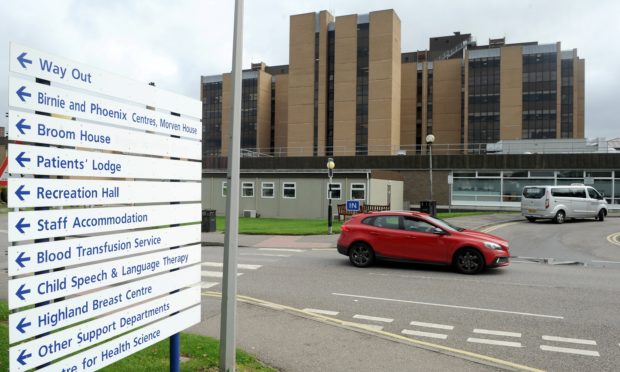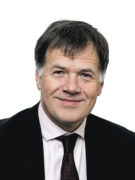Yesterday I was working in the GP call centre at Raigmore Hospital, where we assess calls from people with possible coronavirus. It was my job to give advice to people, deciding who was safe to stay at home or who would need a face-to-face assessment or even hospital admission.
This work has always been core to my role in general practice – picking through symptoms of viral, upper-respiratory conditions to sift out the severe cases that require assessment and treatment.
Some in my profession insinuate that a GP’s working life is filled with coughs and colds, “trivial” work that in their view would make a career as a GP mundane and repetitive. Now these GP skills are coming into their own. I’m proud to be one of those whose expertise and experience are helping to make a difference.
I was struck by the gratitude many expressed when I was on the phone to them. It means a lot because, despite my experience and the safety of the call centre, this is not easy work.
Coronavirus shows itself in varied and odd ways and just because a patient’s symptoms are mild and controlled one day, that’s no guarantee they won’t deteriorate soon afterwards. So we find ourselves dealing with risks and uncertainties, seeking to understand symptoms, context, questions and fears.
Another thing that strikes me during these call centre shifts is that although there are a few patients who appear to have Covid-19, far more do not. Instead, their symptoms suggest many other illnesses. Coronavirus remains out there and will be something we have to learn to deal with for many months to come, but we will also need to begin seeing it in the context of overall health.
Back in my practice in Dingwall, something strange has happened. Throughout my career we have struggled to cope with demand for appointments. Now, for the first time, I find myself asking: where are all the patients?
What has happened to all the chronic diseases we manage? I am increasingly worried that people are avoiding coming to us with other illnesses.
Patients are taking on board the message to stay at home and are anxious not to bother us as we deal with the pandemic. They may also be concerned that coming to the health centre or hospital will put them at risk of catching the virus from us or other patients.
This means, of course, that many will not come to us until much later than before, when their symptoms become unbearable, meaning their care will be much more complex and will carry a reduced chance of cure.
In the past few days I have seen a patient presenting with foot ulcers that will need a hospital admission instead of the district nurse’s attention and another who endured chest pain for two weeks before finally coming to see me.
And then, of course, there’s cancer. People aren’t coming in with their lumps and worries and sore bits. They aren’t being examined and tested which must reduce their chances of a good outcome.
Countries that have strong systems of general practice have better health and lower healthcare costs but at present general practice is only doing a fraction of the routine work we are accustomed to.
This week I have become aware that more people are contacting us with mental health issues. Some are missing the support of mental health services and community organisations, currently suspended.
All are having to do without visits from friends and family. I have spoken to individuals whose already difficult circumstances are made much worse by loss of work, income, company, fresh air and exercise, now stuck at home in the company of dark thoughts, sleeplessness and rising panic.
Hospital waiting times, which were desperately long before coronavirus, will be much worse after months of suspended clinics and are likely to be worsened by patients presenting later and in need of more aggressive treatment. All of this will need tackled by an economy that will have been crippled by recession and this recession will undoubtedly have the biggest effects on the most vulnerable in society, as usual. They are the ones hardest hit by job losses and wage freezes. Financial necessity means they must use public transport to carry out their essential, public-facing jobs. They often live in cramped conditions and many have chronic health conditions, all of which put them at higher risk.
Despite small, encouraging signs of reductions in infection rates, hospital admissions and intensive care numbers, there is no doubt that coronavirus is here for the long haul and GPs are going to have to find new ways to look after the people in our care. But for the time being, we will either have had coronavirus, be suffering from it or be waiting for the infection to strike.
Unless we can stamp out community transmission these facts will continue until a vaccine can be found. Until then GPs, like all other health professionals, will continue to adopt new ways of working and will do our best to be ready to meet this challenge.
Dr Miles Mack is a GP in the Highlands and the former chairman of the Royal College of General Practitioners Scotland

